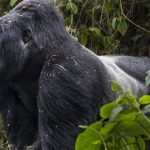- Overview and definition of Responsible Tourism
- Relation of ecotourism and gorilla Conservation in Uganda
- Importance of gorilla trekking safaris
- Community/ village tours as a way to embrace responsible tourism
- Uganda’s best natural places for tourism
Overview of Uganda’s tourism sector and Covid-19 challenges
Uganda is one the destinations on the African continent that are seriously trying to promote responsible tourism alongside efforts to develop the sector further. Destination Uganda is located across the Equator in East African region. The country’s tourism largely based on nature and wildlife has grown becoming the top foreign exchange earner generating about US $1.4 million. From the report published by Daily Monitor Uganda on Friday 3rd April, 2020, the past five years tourism has contributed about 7% to Uganda’s Gross Domestic Product (GDP). The tourism sector benefits directly about 500,000 Ugandan employees. The employment generated by tourism value chain is anticipated to grow by about 10% if tourism regains momentum after the pandemic. Gorilla trekking, chimpanzee tracking, game-viewing, birding, mountain climbing, cultural and historical tours are some of Uganda’s leading attractions fetching tourism revenue for the country.
However, with effects of Covid-19 in 2019 and 2020, projections from Lily Ajarova, the chief executive officer at Uganda Tourism Board, the country likely lost about USD 1.6 billion.
Despite the effects of the global covid-19 pandemic which has in particular led to reduction in revenues, Uganda’s tourism is still very critical to the local economy. The youth are employed as tour guides, game rangers, hotel attendants, car mechanics, etc.
As tourism sector regains momentum with destination East African countries re-opening borders, the workforce essentially recovers to embrace the new normal. Therefore, the tourism forums that bring together different players in the tourism sector of Uganda are rebuilding to be more resilient.
For example, the Ugandan Tourism Association (UTA), Uganda Community Tourism Association (UCOTA) among others are working to prepare the tourism in Uganda to be more sustainable.

Responsible tourism in Uganda
Responsible tourism can be understood by first knowing about ecotourism. The International Ecotourism Society (TIES) defines ecotourism as responsible travel to natural areas that conserve the environment, sustains the wellbeing of the local people and involves interpretation and education. In other words, it means travel to enjoy natural places that respect the environment and supports the local communities.
In that regard, the Uganda tourism players such as tour operators, hoteliers, transportation are rethinking Uganda’s tourisms in their services to be more eco-friendly and also to move to digital transition. For instance, digital transition includes biometric technologies implementation at Entebbe international airport and other border entry points which makes travel more seamless.
Being sustainable and responsible can be challenging to understand. However, given that the tour companies operate differently. Because Uganda is endowed with great natural resources such as wildlife, water bodies and beautiful natural landscapes which acts as basis to move to an eco-tourism.
For instance, Uganda has 10 national parks, 13 wildlife reserves, many lakes and rivers. These form the background for Uganda wildlife safaris. The most popular attraction in Uganda are the mountain gorilla trekking tours. Mountain gorillas live in natural tropical forests such as Bwindi Impenetrable Forest National Park and the Greater Virunga Landscape which includes Mgahinga Gorilla National Park.
Gorilla tourism over the years has generated a lot of revenue through sell of gorilla trekking permits and contributes about 70% of Uganda’s tourism sector. In an article published by International Institute for Environment and Development (IIED) reveals that gorilla tourism has helped local economic development.
Therefore, choosing your destination for gorilla trekking safaris is very important. Because the money you pay to buy gorilla permits helps to fund conservation activities. For instance, ranger monitoring and protection of gorillas, gorilla doctors which carries out identification of sick/injured gorillas and then intervenes to treat them.

Community/Village Tours as A Way to Embrace Responsible Tourism
The people living around Bwindi Impenetrable forest national park and Mgahinga Gorilla national Park are benefit directly from gorilla tourism revenues. For instance, through Uganda wildlife department of community and conservation, many people are employed as local guides, rangers and porters among others. Furthermore more through this department, community tourism initiatives such as village walks, handicraft making, performing arts etc have been set up to promote rural tourism around gorilla parks.
For instance, the BaTwa pygmies who were chased out of the forest in 1991 to conserve gorillas, were compensated. The Batwa pygmies who lived in the forest for over 500000 years, and their unique cultural heritage is well preserved and conserved. Some of the BaTwa are now employed as guides through the BaTwa Development Organization (BDO).
When you want to get more out of your gorilla trekking experience, you are encouraged to go visit the local communities around the gorilla parks. For instance, you take the Batwa trail in Mgahinga where the Batwa pygmies takes you back into the forest to show you how they lived. In Bwindi Impenetrable Forest national park, there are several village walks you can do to support community and responsible tourism.
Away from the gorilla parks, you will also find activities to support rural tourism in Uganda. for instance, Lake Bunyonyi, Lake Mutanda are great destinations to explore after your gorilla trekking experience.
Gorilla ecotourism has led to local economic development in Uganda and is a tool driving responsible tourism in and around Uganda wildlife national parks.









